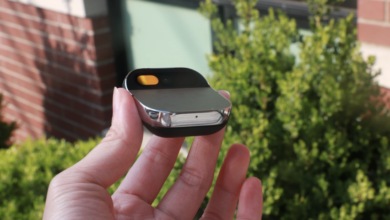
It didn’t take long for wireless earbuds to become ubiquitous. Apple’s AirPods launched back in September 2016, joining notable true wireless headphones from Jabra, Sony, Samsung, and others. A few years later, they’re the go-to choice for many of us when listening to music, podcasts and streaming services on our phones and tablets.
Your wireless earbuds can get very dirty very quickly, because not only are we using them a lot, but we take them everywhere: to work, on public transport, on flights and everywhere in between. This is especially true if you’re using them to cancel out noise in a busy office – or are simply working from home at the same time as family or roommates.This means they will come into contact with ear wax, oils and skin cells. Hygiene aside, you should clean your earbuds (and their charging case) because it may result in better-sounding, longer-lasting headphones.
And if you’re still a wired headphone holdout (or tempted by DAC-capable buds) most of our cleaning tips hold true – and you don’t have to worry about refreshing a charging case.
On that point, if you find your AirPods case is getting a little grubby – or picking up a blue hue from jeans – you could also invest in a case for your case. There are infinite themed and silicone cases for Apple’s AirPod family, but plenty of options exist for buds made by Samsung, Sony, Google and other companies.
The widespread update of wireless buds has several companies now offering all-in-one cleaning kits too. These include established peripheral companies like Belkin, which features cleaning fluid to loosen up any tough build-up of wax and grime. That said, you may not need an entire kit, but suitable tools will make things easier.
You should always use the gentlest cleaning equipment before going ham with rubbing alcohol or a metallic tool. Doing so will reduce the chances of damaging your headphones’ often glossy plastic casing and lessen the chances of damaging the delicate membranes that many buds (and some eartips) have. I speak from experience, having perforated two AirPod membranes due to over-enthusiastic cleaning. Even when removing the tips, take care: With Sony’s WF-1000XM5, you need to twist and pull them off. Just follow the manufacturers’ guidance (we list several guides below), along with our best tips below.
How to clean your wireless earbuds
The cleaning process differs depending on what kind of buds you have. First, there are wireless earbuds with removable silicone (or plastic) buds, like the Galaxy Buds, Sony’s WF-1000XM4 buds or most Beats buds, and several models with a single solid body, like Apple’s original AirPods.
The main difference is that the detachable tips are easier to deep clean. They are also replaceable and spare tips often come in-box. You can also use soapy water or other mild cleaning products on particularly messy tips without fear of damaging the electrical parts of your headphones.
Wipe down the earbuds and removable tips with a microfiber cloth. As most wireless buds are stored in a case, you may find that dirt from the tips has shifted to the headphones too. Apple says you can use “70-percent isopropyl alcohol wipe, 75-percent ethyl alcohol wipe or disinfectant wipes” to clean the exterior of its wireless headphones, but advises that you shouldn’t use wet wipes on the speaker mesh parts of the AirPods. Samsung’s guidance sticks to soft dry clothes and cotton swabs.
Remove the tips, and gently trace the inside of each bud with cotton swab, or a toothpick if you need something thinner. If any detritus sticks around, upgrade to a metal loop on the end of an earphone cleaning tool, but just go carefully. Metallic objects are more likely to scratch and pierce things. The cleaning tool also has a brush at the other end to pull out any loose dirt. Once clear, wipe the sides of the tips with a slightly damp cloth.
The AirPods Pro tips each have a delicate mesh membrane, making it easier to clean than membranes on the headphones themselves, but they’re also fragile. Apple itself advises that you can rinse the tips with water, adding you shouldn’t use soap or other cleaning products on them. If you do use a damp cloth or rinse them, make sure to set them on a dry cloth and let them dry completely before reattaching them.
Apple advises using cotton swabs or a dry cloth for the microphone and speaker mesh parts of the AirPods. You can also use a bulb air blower, which should provide a mild amount of force to dislodge dirt without harming electrics. However, while it might be stronger, don’t use canned air. Sony says this can force dust further into the microphone or sound outlet holes.
How to clean your wireless earbuds’ charging case
You might find that your charging case is in a worse state than your buds. With deep crevices to pick up dirt from your buds when they’re charging, the case can also pick up pocket-lint from being in, well, pockets and your bag. These cases typically use metal contacts to connect to and charge the buds, so any build-up of dirt or earwax can actually affect recharging your headphones. It pays to keep those charging contacts clean. A soft cloth, or a cotton swab for more difficult-to-reach locations, should be able to capture anything blocking your buds from charging. You could also use a bit of air from a bulb air blower – I find the ones with a brush attached are perfect for this.
For both the earbuds and the case, you can use a thin toothpick to pull away any grime or wax trapped in the seams of the device. Most earbuds are molded plastic, but some have edges and lines that collect dirt together.
How to keep your wireless earbuds clean
Now your buds are looking pristine, try to keep them looking that way. If you’re using your AirPods or Galaxy Buds during your workouts, wipe them down with a cloth afterward to reduce the chances of moisture getting inside. The more frequently you check on the state of your wireless earbuds, the easier they are to clean.
We’ll finish this guide with a little bit of digital hygiene: make sure any companion TWE apps are up-to-date. These updates can sometimes add notable new features or improve performance. Your smartphone will usually transmit firmware updates to your earbuds automatically after OS and app updates, so make sure you keep them nearby to your phone. This is especially true with iPhones and AirPods, which will not notify you when firmware updates are available. Check that you’ve got the latest version of the firmware in iOS settings (you probably do), and if it’s not up-to-date, make sure both your iPhone and AirPods are plugged into power and (crucially) near each other. The update should be beamed to the AirPods pretty quickly, but you can also leave the devices next to each other overnight to ensure the update happens.
Source link





